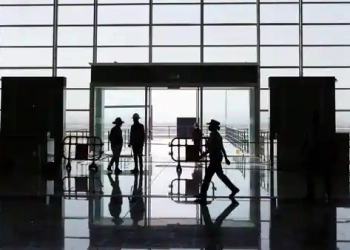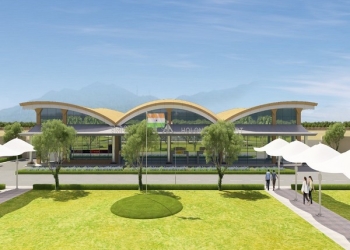Given the increase in Omicron variant instances, the Kempegowda International Airport (KIA) in Bengaluru has declared that it will randomly screen two percent of travelers arriving from areas that are not considered ‘at risk. In accordance with the new standards implemented in the aftermath of the Omicron variant crisis, the Kempegowda International Airport (KIA) in Bengaluru said on Saturday that 2% of passengers arriving from countries not classified as ‘at risk’ will face random testing upon arrival. The Bangalore International Airport (BIAL) turned to Twitter and posted the following message: “According to international travel norms, 2 percent of travelers arriving at the airport from countries that are not on the ‘at-risk’ list will be subjected to random testing upon arrival. BIAL will cover the costs of random testing for travelers who fall into this category.”
According to reports, the Indian government published a new set of recommendations for air travel on November 30 in response to the Omicron virus scare. According to the instructions, countries that are deemed to be “not at risk” will be permitted to depart the airport. However, such travelers are required to self-monitor their health for the first 14 days following their arrival. The Bengaluru International Airport must conduct a random drug test on a subset of passengers, or two percent of the total flight passengers, upon arrival. The airlines would identify two percent of such passengers on each flight, who would be traveling from different parts of the world. Each traveler who has been designated for random testing will be responsible for covering the costs of the testing.
Omicron travel update: India revises its guidelines for international travellers
Arriving travelers are also required to complete a self-declaration form. On November 30, the Indian government announced a new set of instructions in response to the Omicron variant threat. Visitors from countries other than those in danger will be permitted to depart the airport, but they must continue to closely monitor their own health for 14 days following their arrival, the organization stated.
























